Pope Francis calls for end to death penalty
Shift in Catholic teaching could have a global impact
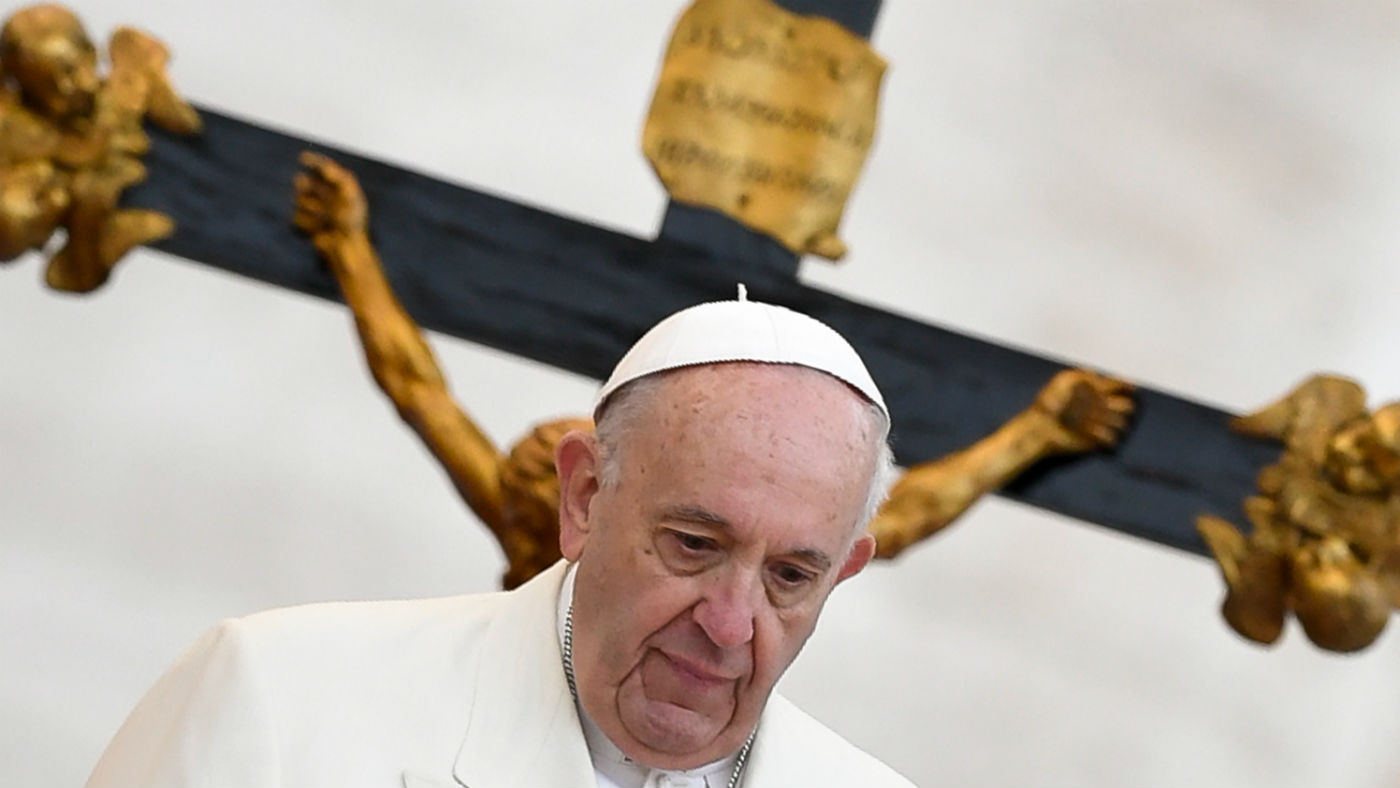
A free daily email with the biggest news stories of the day – and the best features from TheWeek.com
You are now subscribed
Your newsletter sign-up was successful
Pope Francis has declared the death penalty “inadmissible” and “an attack on the inviolability and dignity of the person”, promising the Catholic Church will work towards its abolition around the world.
The change, which has been added to the catechism of the Catholic Church and is therefore now official teaching, formalises a position that the Pope has articulated since becoming pontiff five years ago.
Vatican spokesman Greg Burke told CNN: “The key point here is really human dignity. The Pope is saying that no matter how grievous the crime, someone never loses his or her human dignity.
The Week
Escape your echo chamber. Get the facts behind the news, plus analysis from multiple perspectives.

Sign up for The Week's Free Newsletters
From our morning news briefing to a weekly Good News Newsletter, get the best of The Week delivered directly to your inbox.
From our morning news briefing to a weekly Good News Newsletter, get the best of The Week delivered directly to your inbox.
“One of the rationales for the death penalty in Catholic teachings historically was to protect society. Obviously, the state still has that obligation. That is not being taken away here, but they can do that in other ways.”
Historically, “the Church has mostly been unopposed to the death penalty, including into the 20th century”, reports the BBC.
In 1952, Pope Pius XII said it was not a violation of the universal right to life and even Francis’s predecessor, Pope Benedict XVI, wrote that the death penalty could be permissible in some cases.
“In approving this change, Francis has sent a signal about his priorities - and his posture toward chang0,” says The Atlantic. “The Church has underscored its opposition to the destruction of any kind of life, even when that means defying the state.”
A free daily email with the biggest news stories of the day – and the best features from TheWeek.com
The change in stance “will be a big deal for the future of the death penalty in the world”, said John Thavis, a Vatican expert. “People who work with prisoners on death row will be thrilled, and I think this will become a banner social justice issue for the church.”
According to Amnesty International at least 993 state executions took place in 23 countries last year.
The Pope's declaration “may have particular resonance” in the US, where capital punishment remains legal in 31 states and as a federal punishment, reports CNN.
The New York Times says his decision “is likely to put many American Catholic politicians in a difficult position, especially Catholic governors” who have presided over executions.
For the ninth year running, last year the US was the only country to carry out executions in either North or South America.
But support for the death penalty for murder in the US is on the increase, after hitting a 40-year low in 2016. According to the Pew Research Centre, 54% of Americans now favour the death penalty, including 53% of Catholics.
Some Catholic commentators say the Pope risks setting off “a backlash among Catholic traditionalists who already cast Francis as being dangerously inclined to change or compromise church teaching on other issues,” says The New York Times, “such as permitting communion for Catholics who have divorced and remarried without getting a church annulment.”
-
 Political cartoons for February 20
Political cartoons for February 20Cartoons Friday’s political cartoons include just the ice, winter games, and more
-
 Sepsis ‘breakthrough’: the world’s first targeted treatment?
Sepsis ‘breakthrough’: the world’s first targeted treatment?The Explainer New drug could reverse effects of sepsis, rather than trying to treat infection with antibiotics
-
 James Van Der Beek obituary: fresh-faced Dawson’s Creek star
James Van Der Beek obituary: fresh-faced Dawson’s Creek starIn The Spotlight Van Der Beek fronted one of the most successful teen dramas of the 90s – but his Dawson fame proved a double-edged sword
-
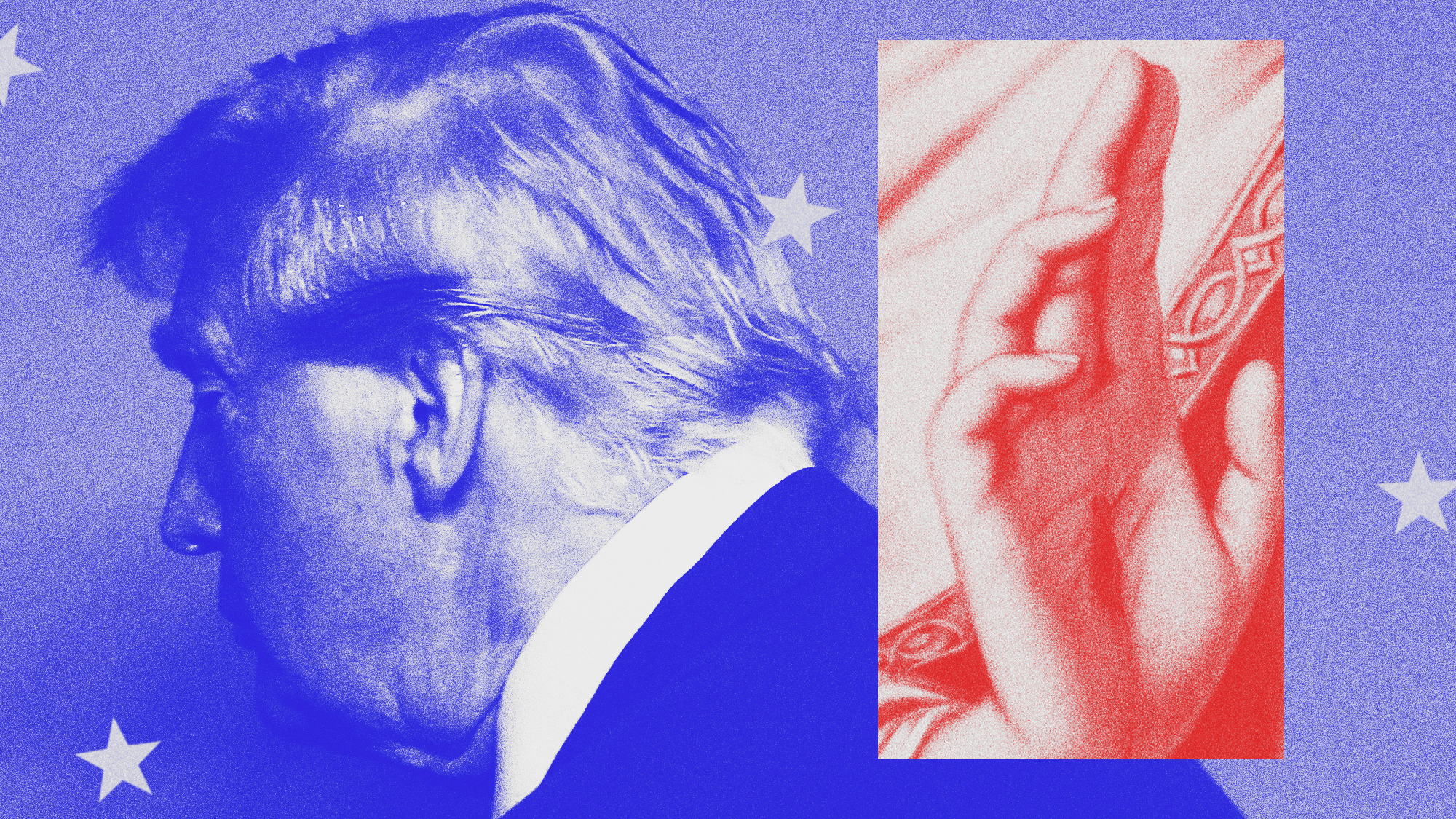 Is the Catholic Church taking on Trump?
Is the Catholic Church taking on Trump?Today's Big Question Pope calls for ‘deep reflection’ on immigration
-
 Pope Leo wants to change the Vatican’s murky finances
Pope Leo wants to change the Vatican’s murky financesThe Explainer Leo has been working to change some decisions made by his predecessor
-
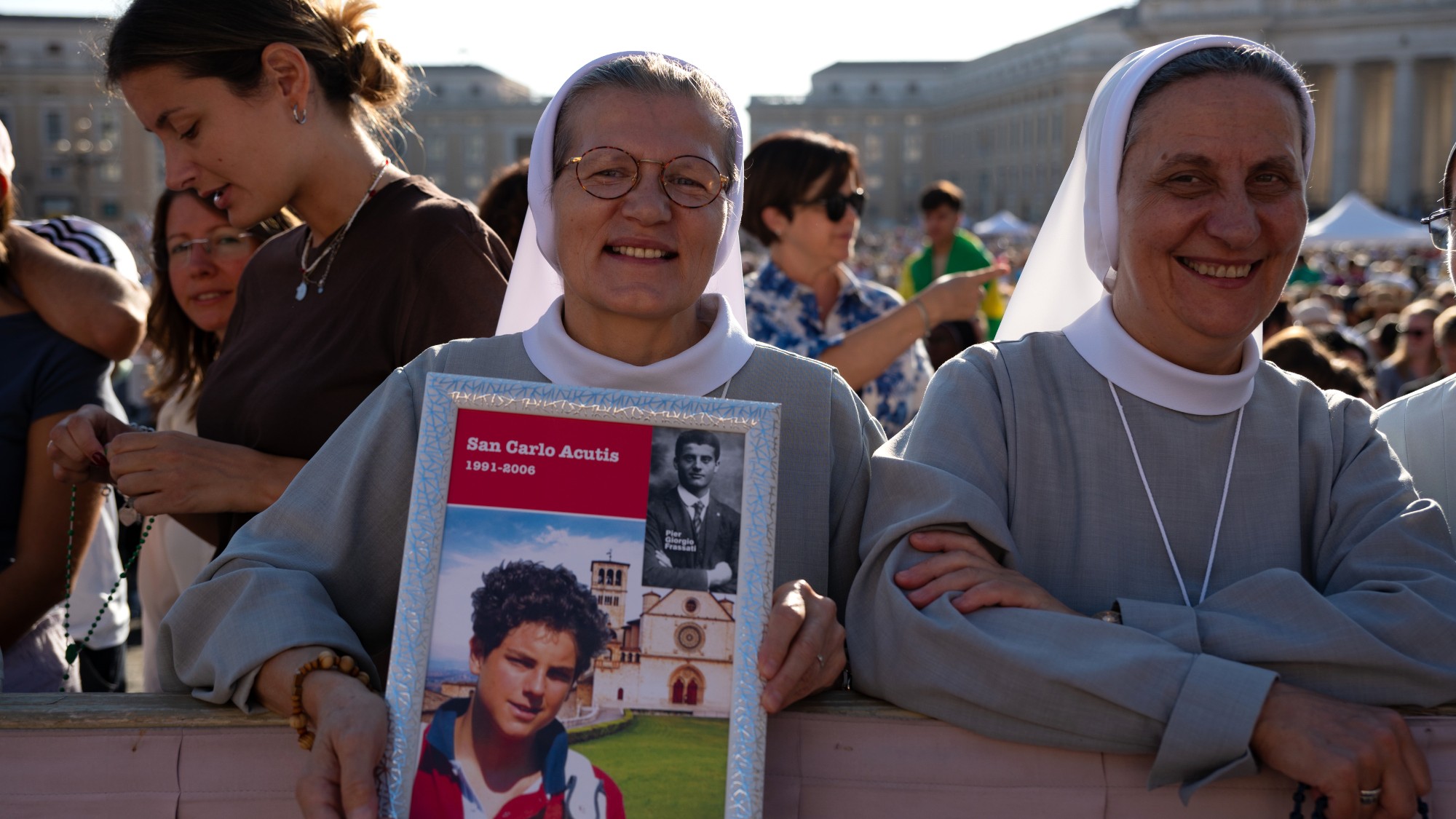 Pope Leo canonizes first millennial saint
Pope Leo canonizes first millennial saintSpeed Read Two young Italians, Carlo Acutis and Pier Giorgio Frassati, were elevated to sainthood
-
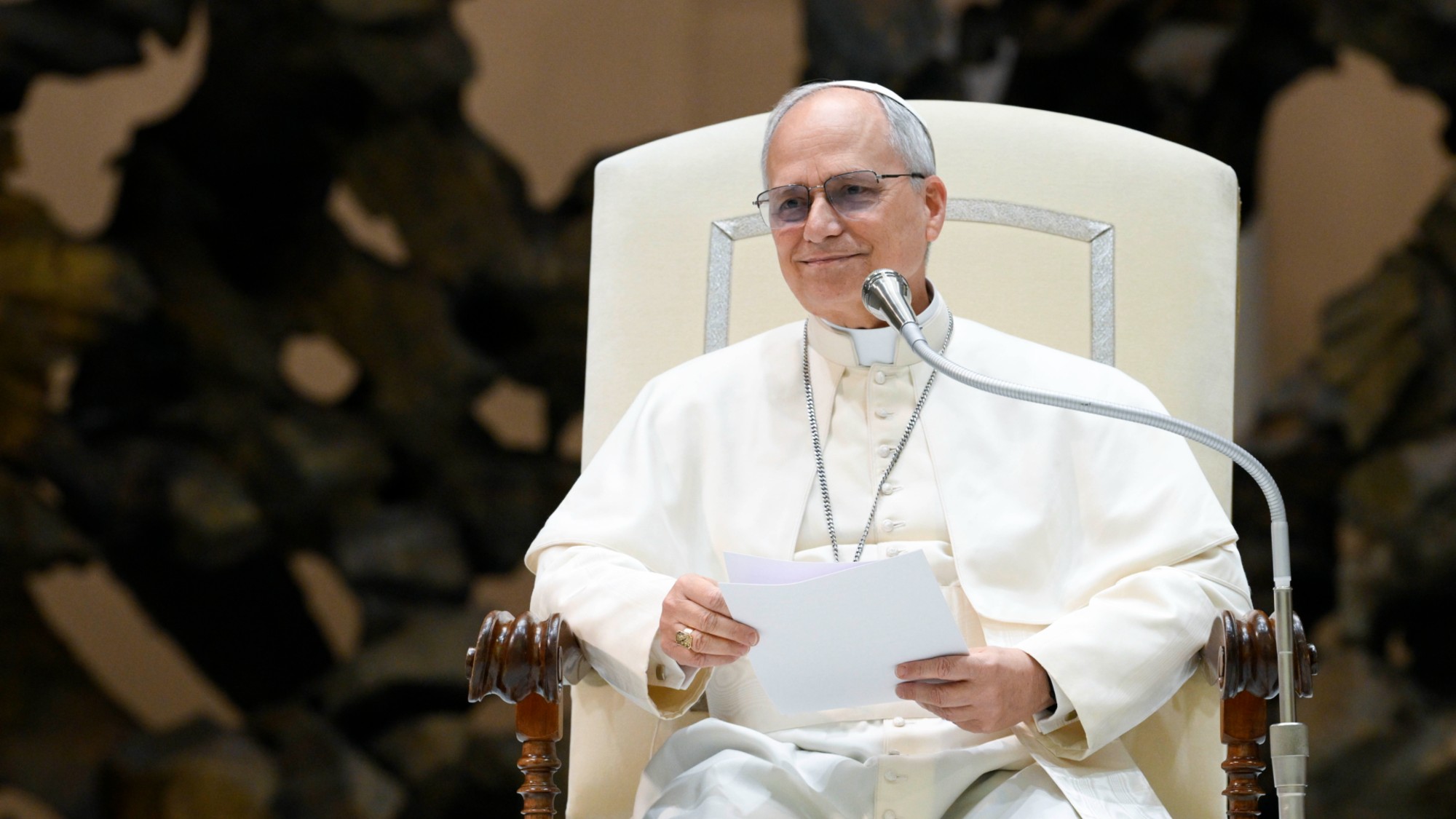 Where the new Pope Leo XIV stands on social issues
Where the new Pope Leo XIV stands on social issuesThe Explainer The first American pontiff is expected to continue some of his predecessor's work
-
 Prevost elected first US pope, becomes Leo XIV
Prevost elected first US pope, becomes Leo XIVspeed read Cardinal Robert Francis Prevost is a Chicago native who spent decades living in Peru
-
 Leo XIV vs. Trump: what will first American Pope mean for US Catholics?
Leo XIV vs. Trump: what will first American Pope mean for US Catholics?Today's Big Question New pope has frequently criticised the president, especially on immigration policy, but is more socially conservative than his predecessor
-
 Could the next pope be an American?
Could the next pope be an American?Today's Big Question Cardinal Robert Francis Prevost is a possible 'superpower pope'
-
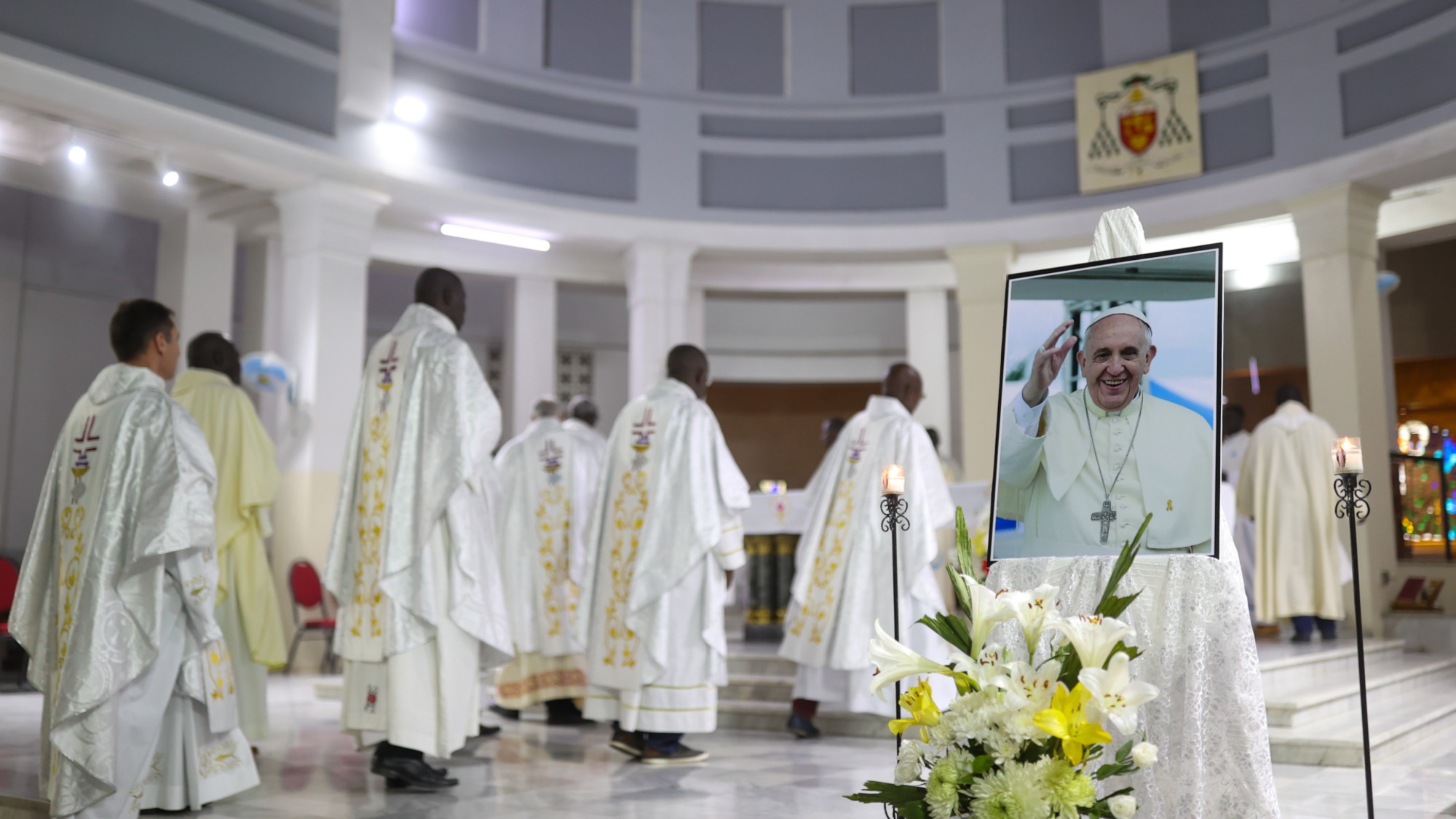 What would an African pope mean for the continent?
What would an African pope mean for the continent?Today's Big Question The Catholic Church has never had a pope from Africa in its modern history